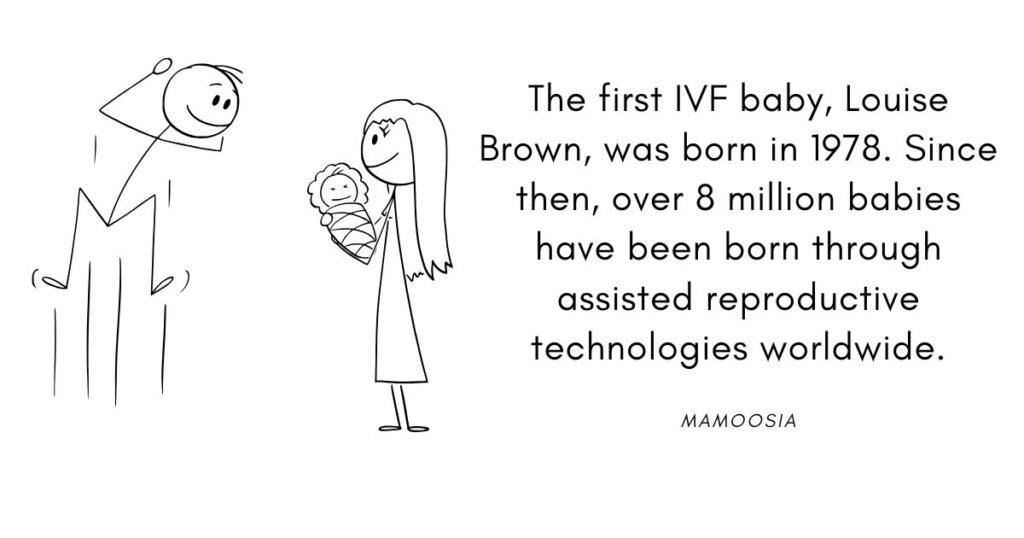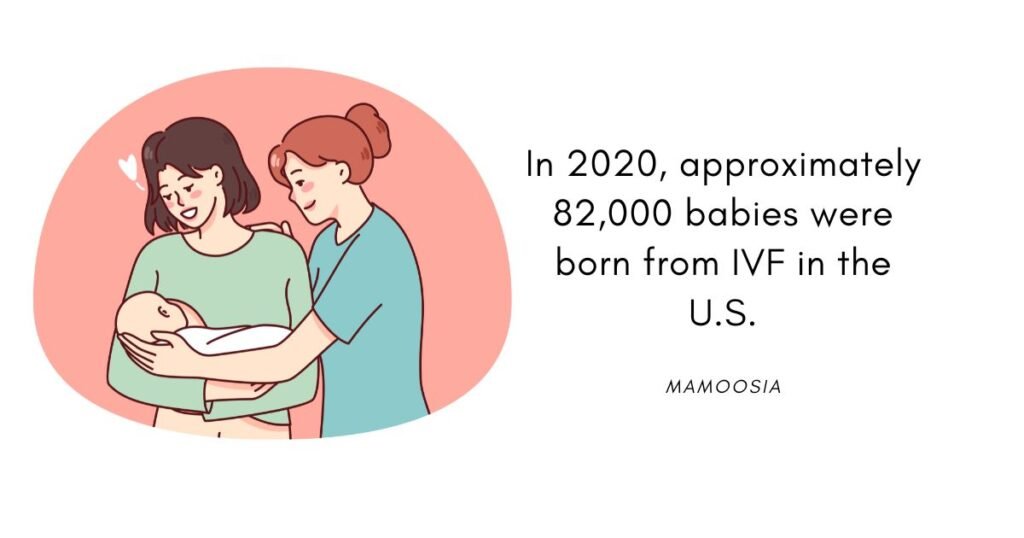
This is an IVF success story of a resilient couple who were determined to become parents. The patient, a 37-year-old woman, had been trying to conceive with her 38-year-old husband for four years.
Her menstrual cycles were regular, and her BMI was 20. She had subclinical hypothyroidism and was taking Euthyrox (50 mg daily). Other than this, her health was good. Her husband had a normal sperm sample, with no fertility issues reported.
Pregnancy History: 3 Recurrent Miscarriages
Throughout their fertility journey, the couple experienced three heartbreaking pregnancy losses:
1. First Pregnancy (2018):
After 18 months of trying, they achieved a spontaneous pregnancy, but unfortunately, the pregnancy ended in a miscarriage at 8 weeks. The patient required Misoprostol to induce uterine contractions and clear the uterus.
2. Second Pregnancy (2019):
After undergoing IVF treatment, the couple conceived again, but the pregnancy ended in miscarriage at 10 weeks.
3. Third Miscarriage:
After the second miscarriage, the couple went for another IVF cycle. This time, the uterus was prepared with 6 mg of Estradiol Valerate, and a Day 5/6 embryo was transferred. Sadly, the pregnancy ended in a miscarriage at 11 weeks.
Investigating the Causes of Recurrent Pregnancy Loss
Recurrent pregnancy loss (RPL) is defined as having three or more consecutive miscarriages before the 20th week of pregnancy.
It can be an emotionally and physically draining experience, requiring a thorough investigation to identify the root causes. Since RPL is complex and multifactorial, a comprehensive approach is essential to determine the underlying cause and tailor a treatment plan.
Several factors may contribute to recurrent pregnancy loss, including:
1. Embryonic Factors:
Chromosomal abnormalities are one of the leading causes of miscarriage. It’s vital to assess the quality of embryos through tests like PGT-A (Preimplantation Genetic Testing for Aneuploidies) to avoid chromosomally abnormal embryos.
2. Uterine Factors:
Conditions such as uterine fibroids, adhesions, or a septate uterus can interfere with implantation and pregnancy maintenance. Diagnostic tools like ultrasound or hysteroscopy are crucial in evaluating these factors.
3. Endocrinological Factors:
Hormonal imbalances, including hypothyroidism (or subclinical hypothyroidism), can influence pregnancy outcomes. Even mild thyroid dysfunction might affect fertility and pregnancy viability, making close monitoring of thyroid function essential.
4. Immune Factors:
Autoimmune conditions like antiphospholipid syndrome or thyroid autoimmunity may increase the risk of miscarriage. Testing for these conditions is crucial for identifying the cause and deciding on appropriate treatment.
5. Male Factor:
While the husband in this case had a normal sperm sample, sperm quality (including DNA fragmentation) can impact embryo quality and the likelihood of successful implantation. It’s essential to consider male fertility factors even when sperm analysis appears normal.
The Path Forward: Moving Toward IVF Success
After experiencing three consecutive miscarriages, the couple decided to continue their efforts. The following steps were taken to maximize their chances of a successful IVF outcome:
Comprehensive fertility testing to assess both partners’ health and identify any underlying issues contributing to the pregnancy losses.
Embryo testing (including genetic screening) for future IVF cycles to ensure only chromosomally normal embryos were selected.
Monitoring and adjusting thyroid medication based on the patient’s test results.
Immune testing (e.g., for antiphospholipid antibodies) to rule out any potential immune system issues that could affect pregnancy.
The IVF Success Story: A Rainbow Baby

After following the personalized treatment plan, the couple conceived again after 7 months of trying. This time, their pregnancy was successful, and they gave birth to a healthy baby boy, named Morris—their rainbow baby.
Final Thoughts: Never Give Up
This IVF success story after recurrent miscarriages is a testament to the importance of persistence and a personalized approach when dealing with recurrent pregnancy loss.
Although the couple faced several setbacks, they never gave up. With the right medical care, they eventually achieved their dream of having a child.
For those wondering how many miscarriages are too many before giving up, it’s important to remember that each couple’s journey is unique.
I’ve met couples who had 10 miscarriages in a row but still remained hopeful and positive. On the 11th try, they were blessed with a beautiful, blue-eyed baby. So, remember: giving up is never an option. If this couple had given up after their losses, they wouldn’t have their son, Steve, today.
The key takeaway is that IVF success is possible, even after multiple losses, when the right treatment and support are provided.
Misdiagnosed Miscarriage Success Story